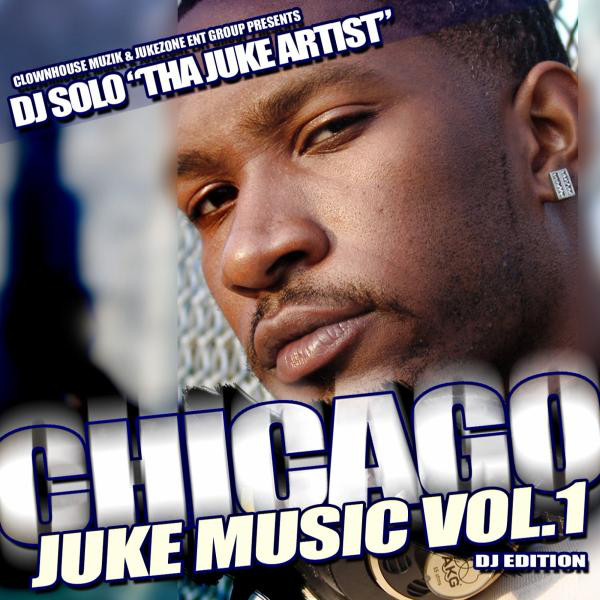Chicago juke music has a vibrant history, brimming with energy and rhythm that captivates listeners. It emerged from the underground scenes of Chicago, influencing countless artists and genres along the way. Today, the phrase "just say you will" resonates deeply within the juke community as a call to action, a plea for authenticity, and a celebration of the culture that brought this electrifying sound to life. The pulsating beats and frenetic pace of juke have not only defined a genre but have also served as a backdrop for dance battles, parties, and community gatherings. This article delves into the essence of Chicago juke culture, exploring its origins, key players, and the profound impact it has on the music scene today.
As we navigate through the world of juke music, it's essential to understand the significance of its roots and how they shape the artists and fans of today. The phrase "just say you will" serves as a reminder of the community's resilience and passion. It invites newcomers to embrace the culture, join the dance, and contribute to the rich tapestry of sounds that define Chicago juke.
Join us as we explore the many facets of this exhilarating genre, uncovering the stories behind the beats, the dancers, and the cultural movements that continue to thrive in Chicago and beyond. From its humble beginnings to its current revival, Chicago juke remains a testament to the power of music to unite, inspire, and ignite the spirit of a city.
What is the History of Chicago Juke Music?
Chicago juke music originated in the late 1980s, evolving from the Chicago house music scene. It is characterized by its fast tempo, heavy bass, and rhythmic vocal samples. The genre gained popularity in local dance clubs and has since influenced various styles, including footwork and ghetto house. Key figures such as DJ Spinn and Rashad Harden (also known as DJ Rashad) played significant roles in shaping the juke sound and pushing its boundaries. The genre’s rise was fueled by its connection to the Chicago dance scene, where dancers showcased their skills through intricate footwork that matched the frenetic beats.
Who are the Key Artists Behind Chicago Juke?
Several influential artists have made their mark on the Chicago juke scene. Notable figures include:
- DJ Rashad: A pioneer of footwork and juke, known for his innovative production techniques.
- DJ Spinn: Collaborated with Rashad and helped popularize juke through various releases.
- Traxman: Known for his versatile production style, blending juke with elements of hip-hop and R&B.
- Ghetto Teknitianz: A collective of artists dedicated to preserving and promoting juke culture.
How Has Technology Influenced Chicago Juke Music?
In recent years, technology has transformed how juke music is produced, shared, and experienced. Digital production tools and platforms like SoundCloud and Bandcamp have allowed emerging artists to showcase their work and connect with global audiences. Additionally, social media has played a pivotal role in promoting juke culture, enabling dancers and musicians to share their performances and reach new fans. This digital revolution has contributed to the resurgence of juke music, making it more accessible and relevant to younger generations.
What Role Does Dance Play in Chicago Juke Culture?
Dance is an integral part of Chicago juke culture, with styles like footwork and juke dancing evolving alongside the music. Dancers often create their own interpretations of the beats, showcasing their skills in competitions and community events. The interaction between dancers and DJs creates a unique atmosphere that amplifies the energy of the music, making live performances an unforgettable experience. The phrase "just say you will" encapsulates the spirit of participation and encourages individuals to embrace the dance floor.
How Can You Get Involved in the Chicago Juke Scene?
For those interested in immersing themselves in the Chicago juke culture, there are several ways to get involved:
- Attend local juke events and dance battles to experience the culture firsthand.
- Join dance classes to learn the footwork style and connect with fellow enthusiasts.
- Support local artists by streaming their music and attending their shows.
- Engage with the community on social media platforms to stay informed about upcoming events and releases.
What is the Future of Chicago Juke Music?
The future of Chicago juke music appears bright, with a new generation of artists and dancers eager to innovate and push the genre further. Collaborations with other genres, including electronic and hip-hop, are expanding the sound and reach of juke. As the culture continues to grow, the phrase "just say you will" serves as a rallying cry for both artists and fans to embrace their creativity and contribute to the ever-evolving landscape of Chicago juke.
In Conclusion: Why is "Just Say You Will" Important in Chicago Juke Culture?
In conclusion, the phrase "just say you will" embodies the spirit of Chicago juke culture, inviting individuals to participate, create, and celebrate the music and dance that have defined a community. Chicago juke is not just a genre; it is a cultural movement that invites everyone to join in and express themselves. By understanding its history, engaging with its artists, and embracing the dance, you too can be part of this vibrant and exhilarating world. So, just say you will, and step onto the dance floor of Chicago juke!

![DJV "JukeaLicious Side B" (Preview) [Chicago Juke Music] YouTube](https://i.ytimg.com/vi/ubNmuIH5PKo/maxresdefault.jpg)


